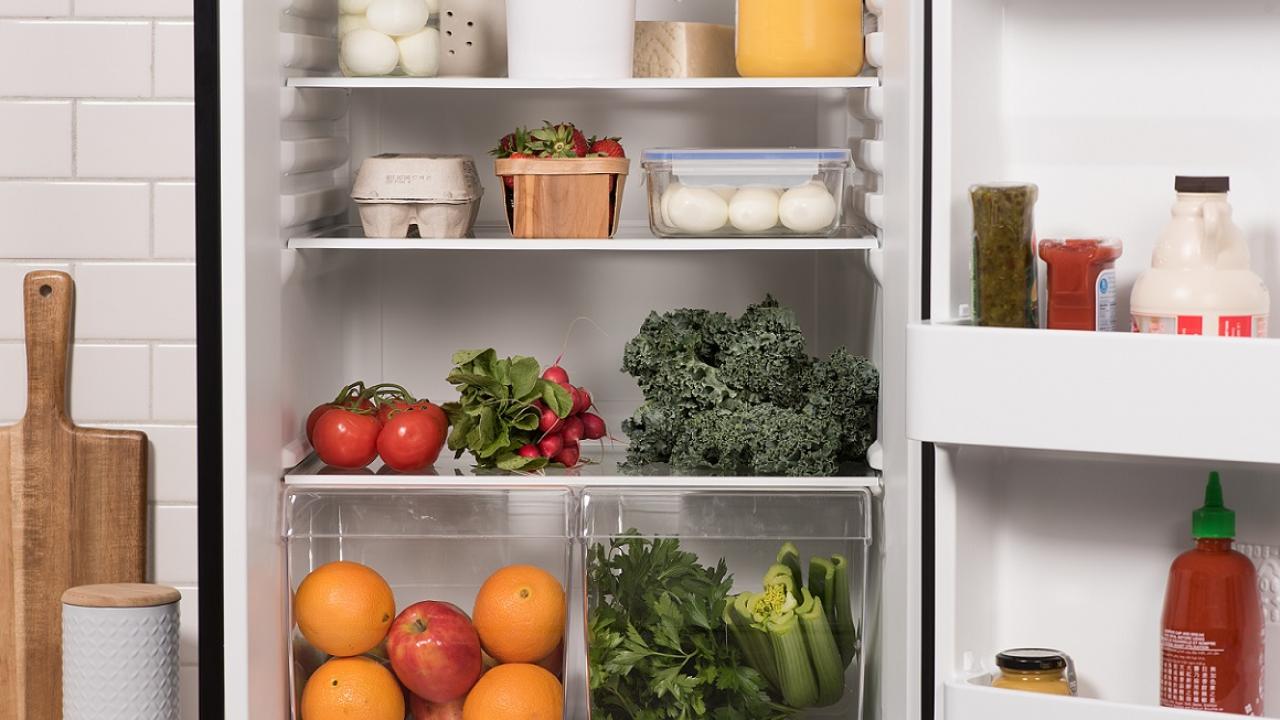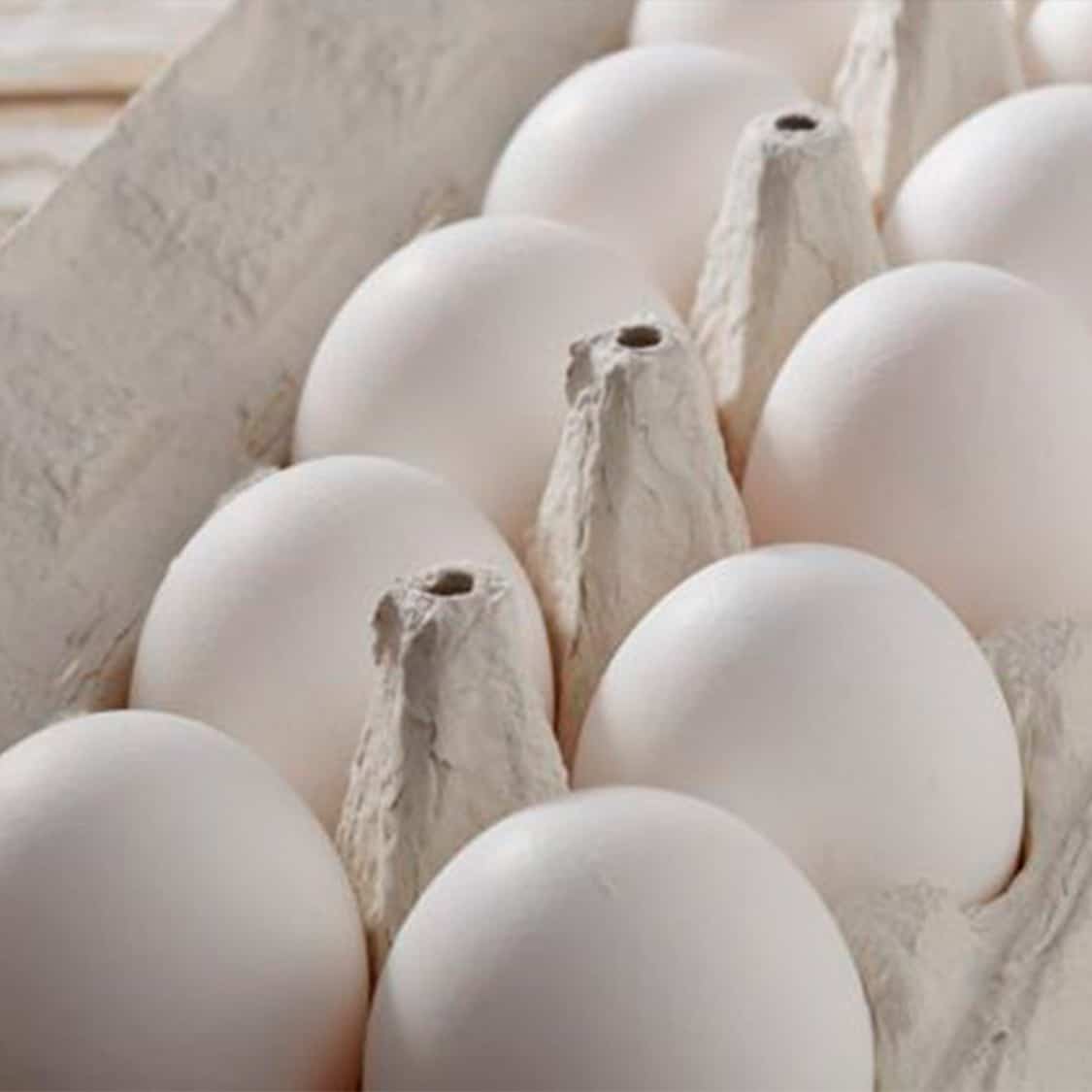Uncooked eggs last about 3-5 weeks in the fridge. Store scrambled eggs safely for up to 4 days.

Eggs are a staple in many households due to their versatility and nutritional value. Proper storage ensures they remain safe and tasty. Uncooked eggs can last 3-5 weeks in the fridge, but knowing how to store them correctly is crucial.
On the other hand, scrambled eggs should be consumed within four days when refrigerated. Always keep eggs in their original carton to maximize freshness, and place them in the coldest part of the fridge. For scrambled eggs, use airtight containers and refrigerate promptly. These practices help maintain quality and reduce the risk of foodborne illnesses.
Importance Of Proper Storage
Proper storage of eggs is crucial for maintaining their quality. It ensures they remain safe to eat. Uncooked eggs can spoil if not stored correctly. This leads to foodborne illnesses. Storing scrambled eggs safely also requires attention to detail.
Preventing Bacterial Growth
Bacteria can proliferate in eggs. This happens if they are not stored properly. To prevent this, keep eggs in the fridge. The temperature should be below 40°F (4°C). Always store eggs in their original carton. This protects them from contamination.
Wash your hands before and after handling eggs. This minimizes the risk of spreading bacteria. Avoid keeping eggs at room temperature. Bacteria can multiply quickly at higher temperatures.
Maintaining Freshness
To maintain freshness, keep eggs in the coldest part of the fridge. This is usually the back of the bottom shelf. Do not store eggs in the fridge door. The temperature there fluctuates too much.
Scrambled eggs should be stored in an airtight container. Place the container in the fridge within two hours of cooking. Use them within three to four days for the best quality.
Here’s a quick table for easy reference:
| Type of Egg | Storage Method | Duration |
|---|---|---|
| Uncooked Eggs | An airtight container, in the fridge | 3 to 5 weeks |
| Scrambled Eggs | An airtight container in the fridge | 3 to 4 days |
Following these steps ensures your eggs stay fresh and safe to eat.

Credit: www.healthline.com
Ideal Fridge Temperature
Keeping your fridge at the right temperature is crucial for food safety. This ensures your uncooked eggs and scrambled eggs stay fresh. Improper storage can lead to bacterial growth. Let’s explore the best temperature for your fridge.
Recommended Temperature Range
The ideal temperature range for your fridge is between 35°F and 38°F (1.7°C to 3.3°C). This range keeps your food cold without freezing it. It also helps in slowing bacterial growth.
Here’s a quick guide:
- 35°F (1.7°C): Keeps food fresh and slows bacteria.
- 36°F (2.2°C): Ideal for most fresh foods.
- 37°F (2.8°C): Great for eggs and dairy.
- 38°F (3.3°C): Still safe, but pushing the limit.
Using A Fridge Thermometer
A fridge thermometer is a handy tool. It helps you monitor the temperature accurately. Please place it on the middle shelf for the best results. Check it weekly to ensure it stays within the recommended range.
Here’s how to use it:
- Buy a good-quality fridge thermometer.
- Place it on the middle shelf.
- Wait for about an hour to get a reading.
- Adjust your fridge settings if needed.
- Check it weekly to keep your food safe.
Storing eggs properly is essential. Uncooked eggs can last up to 3-5 weeks in the fridge. Make sure your fridge is at the right temperature for maximum freshness.
Here’s a quick table for reference:
| Item | Recommended Temp | Storage Duration |
|---|---|---|
| Uncooked Eggs | 35°F-38°F (1.7°C-3.3°C) | 3-5 weeks |
| Scrambled Eggs | 35°F-38°F (1.7°C-3.3°C) | 3-4 days |
Keeping your fridge at the right temperature is critical. It ensures your eggs stay fresh and safe to eat.
Best Practices For Storing Eggs
Storing eggs properly is crucial for maintaining their freshness and safety. Following some best practices ensures that your eggs stay fresh for extended periods. This guide will help you understand how to store eggs effectively and safely.
Original Carton Vs. Egg Trays
Always keep eggs in their original carton. The carton protects eggs from absorbing solid odors and flavors from other foods in the fridge. It also prevents moisture loss and keeps eggs at a consistent temperature.
Egg trays might look neat but don’t offer the same protection. Without the carton, eggs are more exposed to temperature changes and odors. The carton also provides essential information like the expiration date, which helps you track the freshness of your eggs.
| Storage Method | Protection Level | Odor Absorption | Temperature Stability |
|---|---|---|---|
| Original Carton | High | Low | High |
| Egg Trays | Low | High | Low |
Placement In The Fridge
Place eggs on a shelf in the fridge, not in the door. The door experiences frequent temperature changes, which can cause eggs to spoil faster. A stable temperature is critical to keeping eggs fresh.
To maximize freshness, keep eggs in the coldest part of the fridge. This is usually the back of the middle shelf. Ensure eggs are stored away from strong-smelling foods to prevent odor absorption.
- Keep eggs in the original carton.
- Store eggs on a fridge shelf, not in the door.
- Place eggs in the coldest part of the fridge.
- Avoid storing eggs near strong-smelling foods.
Following these simple steps will help you keep your eggs fresh and safe to eat. Proper storage is critical to enjoying eggs at their best quality.

Credit: www.eggs.ca
Shelf Life Of Uncooked Eggs
Understanding the shelf life of uncooked eggs is essential for food safety. Eggs can spoil if not stored correctly. Knowing how long they last helps prevent foodborne illnesses.
Room Temperature Vs. Refrigerated
Room temperature: Uncooked eggs left at room temperature spoil quickly. They should not stay out for more than two hours.
Refrigerated: Eggs last much longer in the fridge. When stored at 40°F or below, they can stay fresh for 3-5 weeks.
Here is a quick comparison:
| Storage Method | Duration |
|---|---|
| Room Temperature | Up to 2 hours |
| Refrigerated | 3-5 weeks |
Signs Of Spoilage
Knowing the signs of egg spoilage is crucial for safety. Here are some key indicators:
- Lousy smell: A strong, unpleasant odor means the egg is spoiled.
- Discoloration: Pink, green, or iridescent egg whites or yolks are ominous signs.
- Float test: An egg that floats in water is likely spoiled.
- Cracks: Cracked shells can lead to contamination.
Always check for these signs before using eggs. Store them properly to extend their shelf life.
Extending Egg Freshness
Keeping eggs fresh in the fridge is essential for safe eating. Fresh eggs taste better and are healthier. Learn how to extend your eggs’ freshness and safely store scrambled eggs.
Proper Handling
Handle eggs with care to keep them fresh longer. Follow these simple tips:
- Always check the eggs for cracks before buying.
- Store eggs in the original carton to protect them.
- Place the eggs on a middle or lower shelf in the fridge.
- Keep the fridge at or below 40°F (4°C).
- Wash your hands before and after handling eggs.
Avoiding Cross-contamination
Avoiding cross-contamination is critical to safe egg storage. Follow these steps:
- Keep raw eggs separate from other foods.
- Use a clean container to store scrambled eggs.
- Do not use the same utensils for raw and cooked eggs.
- Clean all surfaces and tools after touching raw eggs.
| Storage Method | How Long Eggs Last |
|---|---|
| Scrambled eggs in the fridge | 3-5 weeks |
| Scrambled eggs in fridge | 3-4 days |
By following these tips, you can extend your eggs’ freshness and safely store scrambled eggs. Enjoy your eggs with peace of mind!
Health Risks Of Improper Storage
Storing uncooked eggs in the fridge is essential for food safety. If not stored correctly, eggs can harbor harmful bacteria. These bacteria can cause serious health problems. Learn the dangers of improper storage and how to stay safe.
Salmonella And Other Bacteria
Salmonella is the most common bacteria found in eggs. It can cause food poisoning. Other bacteria include E. coli and Staphylococcus aureus. These can also make you sick.
Eggs must be kept at a temperature below 40°F (4°C). This slows down the growth of bacteria. Always check the expiration date on the carton. Use eggs before they expire.
Symptoms And Prevention
If you eat contaminated eggs, you may get sick. Symptoms include:
- Stomach cramps
- Diarrhea
- Fever
- Vomiting
These symptoms can appear within 6 to 48 hours after eating. They can last up to a week.
To prevent getting sick:
- Store eggs in their original carton.
- Please keep them in the coldest part of the fridge.
- Do not wash eggs before storing. Washing can remove the protective coating.
- Cook eggs thoroughly. Scrambled eggs should be cooked until firm.
Follow these tips to keep your eggs safe and enjoy them without worry.
Eco-friendly Egg Storage
Many people store uncooked eggs in the fridge. Eco-friendly egg storage helps the planet and keeps food fresh. Learning how to store scrambled eggs safely is also vital.
Reusable Containers
Using reusable containers is a great idea. These containers can be glass or BPA-free plastic. They help keep eggs fresh and reduce waste.
- Choose containers with tight lids.
- Label each container with the date.
- Wash containers after each use.
Using reusable containers is simple and effective. It keeps your eggs safe and the environment clean.
Reducing Food Waste
Reducing food waste is essential. Here are some tips to avoid wasting eggs:
- Store eggs in the fridge at 40°F or below.
- Use older eggs first.
- Freeze scrambled eggs if not used quickly.
Following these steps helps keep your eggs fresh. It also helps the planet by reducing food waste.
| Storage Method | Duration |
|---|---|
| Fridge (uncooked eggs) | 3 to 5 weeks |
| Fridge (scrambled eggs) | 3 to 4 days |
| Freezer (scrambled eggs) | Up to 1 year |
Storing eggs properly helps reduce waste. It also keeps your family safe.
Common Myths About Egg Storage
Egg storage myths can lead to food waste and health risks. Let’s debunk some common misconceptions about storing uncooked and scrambled eggs safely. Knowing the facts ensures your eggs stay fresh and safe to eat.
Refrigeration Necessity
Many believe that eggs don’t need refrigeration. This myth can be dangerous. In the U.S., eggs must be refrigerated due to the cleaning process. Washing eggs removes a protective layer, making them prone to bacteria.
Always keep eggs in the fridge to maintain freshness. Store them in their original carton to prevent moisture loss. The carton also protects eggs from absorbing solid odors.
Check the sell-by date on the carton. Most eggs last 3-5 weeks in the fridge. If unsure, use the float test. Place the egg in water. If it sinks, it’s fresh. If it floats, it’s time to discard.
Washing Eggs Before Storage
Washing eggs before storing them is another common myth. Cleaned eggs lose their protective coating, making them vulnerable to bacteria. It’s best to store eggs unwashed and clean them just before use.
For scrambled eggs, proper storage is crucial. Store cooked scrambled eggs in an airtight container. Please place them in the fridge within two hours of cooking. They stay safe to eat for up to four days.
Label the container with the date cooked to track freshness. Reheat scrambled eggs to an internal temperature of 165°F (74°C) before eating.
Follow these tips to keep your eggs safe and delicious. Storing eggs properly helps maintain their quality and reduces the risk of foodborne illness.

Credit: www.incredibleegg.org
Frequently Asked Questions
How Long Can You Keep Uncooked Scrambled Eggs in the Fridge?
Uncooked scrambled eggs can be kept in the fridge for up to two days. Store them in an airtight container.
How Do You Preserve Raw Scrambled Eggs?
Store raw scrambled eggs in an airtight container. Refrigerate immediately and use within 2-3 days. Label the container with the date.
Can You Prep Uncooked Scrambled Eggs the Night Before?
Yes, you can prep uncooked scrambled eggs the night before. Store them in an airtight container in the fridge.
What is the Best Way to Store Uncooked Eggs?
Store uncooked eggs in their original carton. Please keep them in the refrigerator at 40°F (4°C) or lower. Avoid placing eggs in the refrigerator door. Use eggs within three weeks for best quality.
.
Conclusion
Storing uncooked eggs and scrambled eggs properly ensures safety and freshness. Keep them refrigerated and follow our tips. Proper storage practices prevent foodborne illnesses and extend shelf life. Enjoy your eggs without worry by following these guidelines. Stay informed and keep your kitchen safe with these easy steps.


GIPHY App Key not set. Please check settings